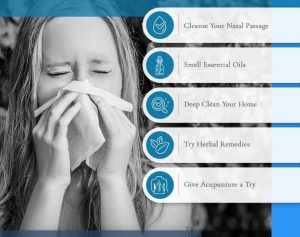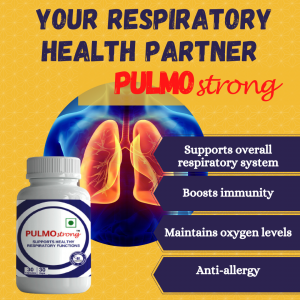An allergic reaction occurs when the immune system reacts to something that doesn’t bother other people. Pollen, dust mites, mold spores, insect stings, food, and medications are the biggest culprits for causing allergic reactions.
Sneezing, runny nose, itching, rashes, swelling, and wheezing are the symptoms of allergic reactions. Doctors treat allergies with a variety of medications. However, there are natural home remedies for allergies that you might consider.
Ways to control allergies without medication
The best natural remedy for allergies is limiting or avoiding allergens, which cause your allergic reaction.
Saline nasal irrigation
Nasal rinse not only clears mucus secretion from your nose but also washes out any bacteria or allergens inhaled.
Air filters
High-efficiency particulate air (HEPA) filters trap airborne irritants such as pollen, dust, and pet dander, to reduce allergens in indoor environments.
Bromelain
Bromelain is an enzyme found in papaya and pineapple, which is effective at improving breathing by reducing swelling.
Probiotics
Probiotics contain strains of beneficial bacteria (e.g., Bifidobacterium longum) to produce a stronger immune response to common allergens.
Air conditioners and dehumidifiers
By removing moisture from the air, air conditioners and dehumidifiers can limit the growth of allergens.
Spirulina
Dietary spirulina is a blue-green alga that demonstrated antiallergic protective effects towards allergic rhinitis.

Quercetin
Quercetin naturally found in broccoli, cauliflower, green tea, and citrus fruits, stabilizes the release of histamines and helps to control allergy symptoms.
Vitamin C
acts as a natural antihistamine by reducing the amount of histamine your body produces in response to an allergen. It might help reduce mild symptoms.
Rosemary extract
This herb is known for its medicinal properties to alleviate pain, boost immunity, improve memory and even promote hair growth. Rosemary oil or tea can be beneficial to respiratory health by clearing the mucus build-up in the lungs.
Keep out breezes
Keeping windows and doors closed and turning on the A/C if needed, will lower your exposure to irritants.
Wear a mask
Mask-wearing protects you from pollen and other allergens. An N95 respirator mask will block 95 percent of small particles that cause seasonal allergies.
Eat Healthily
Add some fresh fruit and vegetables to every meal to help boost antioxidants and vitamin C levels and reduce inflammation. These will both provide some allergy relief.
Inhale some steam
This is an easy and effective way to ease a stubborn, stuffy nose and help you breathe easier. You can also linger in the shower and take a few deep breaths.
Essential oils
Peppermint and eucalyptus oil had enough anti-inflammatory effects that reduced the symptoms of allergic rhinitis. Essential oils can be diffused into the air but should be diluted in a carrier oil if applied topically.
Using home remedies for allergies can be effective. It is better to discuss them with your doctor before trying them out. Get a full diagnosis and listen to your doctor’s suggestions on what’s best for you and your situation.

For stronger immunity and healthy lungs, include PULMOSTRONG in your daily lifestyle. PULMOSTRONG also contains a blend of natural ingredients that prevent lung infections.
References:
https://www.healthline.com/health/home-remedies-for-allergies#takeaway
https://www.webmd.com/allergies/ss/slideshow-natural-relief
https://www.mayoclinic.org/diseases-conditions/hay-fever/in-depth/seasonal-allergies/art-20048343



